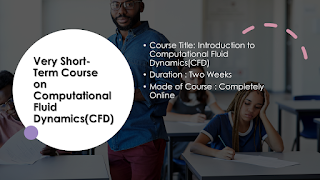Course Title: Course Title: Introduction to Computational Fluid Dynamics(CFD)
Course Duration: 2 Week
Course Outcome :
1)What is CFD? How to apply CFD?
2)Introduction to Gauss Siedel and Lieberman Method
3)Classification of Partial Differential Equation
4) One publication in EIS Journal or Book
Cost: INR1000/=(Free until the 31st May 2023)
Online Courses for those who have no time to attend offline courses.
Click to Baipatra for enrolling in the course for free.
